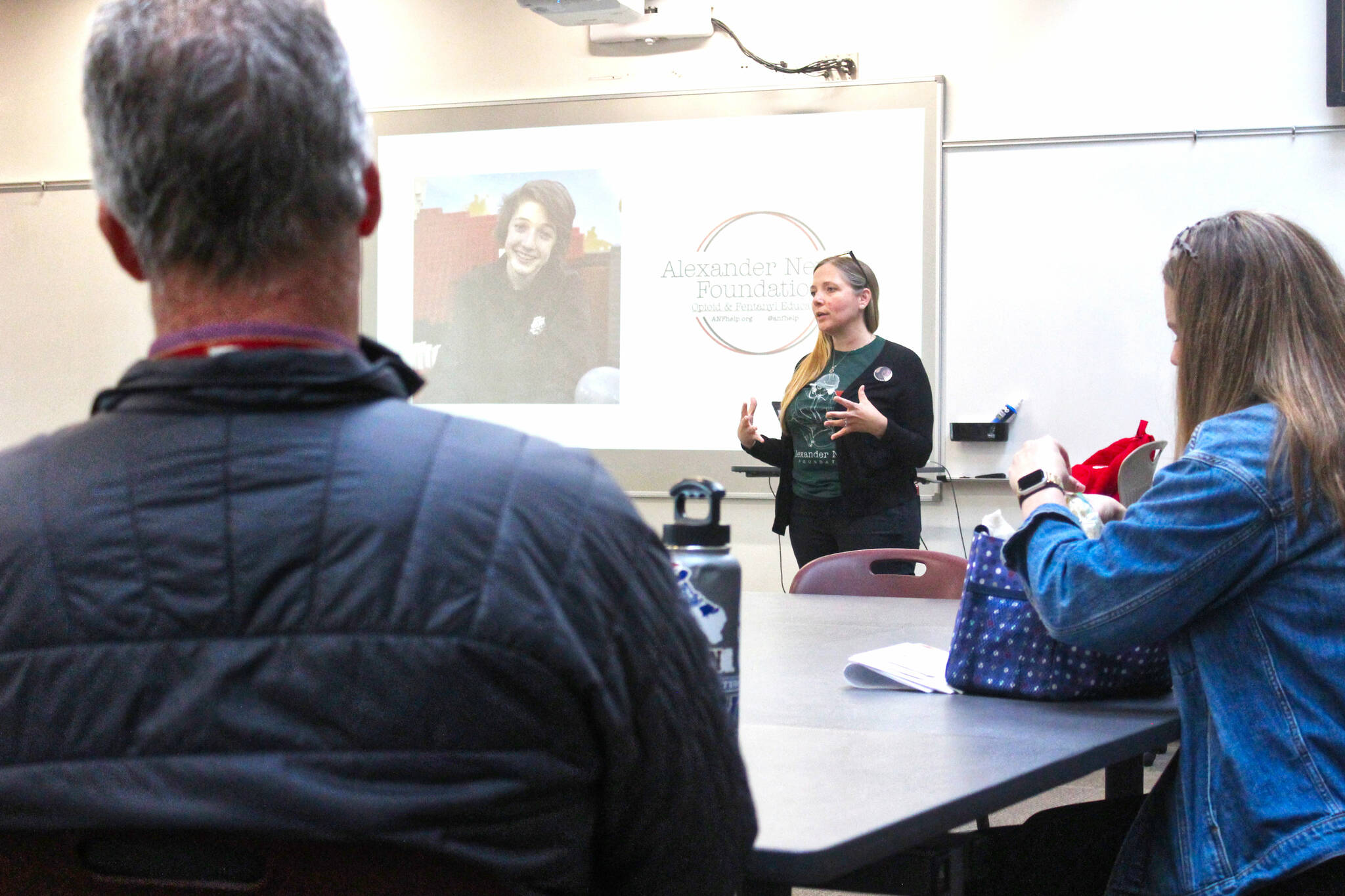Fentanyl deaths have grown exponentially over the last decade — in King County, there were nearly 1,100 overdose deaths last year, more than 300 more in 2022 and far more than other drug overdose deaths.
But what does that mean on a local level? Enumclaw Youth Empowered and Amy Neville, founder of the Alexander Neville Foundation, is looking to answer your questions about the powerful drug, address how it’s getting into the hands of teenagers, and help parents strategize how to talk to their kids about the dangers of fentanyl, how to recognize fentanyl use or ingestion, and what to do in the case of an overdose.
Additionally, a short documentary about fentanyl, “Come Back Home”, which adds a youth point-of-view to the discussion, will be shown.
This community meeting is scheduled for May 7, 6:30 to 8 p.m., at the new Rainier Foothills Wellness Foundation headquarters at 1304 Griffin Avenue.
Amy Neville came to Enumclaw a year ago to talk to local students and parents about her experience with fentanyl; she started her California-based nonprofit after her son, Alexander, died of an overdose after accidentally taking the drug in 2014.
According to Neville, her son came clean to his parents about connecting with an oxycontin dealer over the social media app Snapchat.
“‘It has a hold on me, and I don’t know why,’” she recalled him saying in a 2023 interview.
The following morning, his parents called a rehab treatment facility; that night, he died, minutes before the treatment center called back.
“Death was not on our radar,” Neville continued. “We thought we were dealing with grandma’s pills — that’s what was still being talked about… We learned the hard way that was not what was going on anymore.”
Alexander’s case would have been considered rare back then — unintentional overdose deaths (including, but not limited to fentanyl) were less than one teenager (ages 15 to 19) per 100,000 people back in 2015, according to the National Institute of Drug Abuse; by 2022, that rate had tripled.
Other sources, like UCLA Health, said teenage overdose death rates tripled by that year, and an average of 22 teenagers between 14 and 18 years old died every week from an overdose — not necessarily to a rise in illicit drug use, but the presence of fentanyl (which the CDC say is 100 times more potent than morphine) in fake prescription drugs.
According to PBS, 84% of teenage drug overdose deaths between 2019 and 2021 involved fentanyl as a “key component,” if not fully responsible for the death.
One of the big issues parents face is that many teenagers that die via opioid overdose don’t have a substance use history — only one in ten, according to PBS — which means parents have to look for other signs that could point toward potential opioid use.
For Alexander and many other teens, it was depression; PBS reported that four in ten overdose deaths among kids between 2019 and 2021 had a history of mental health conditions.
Males are also particularly affected by drug overdose deaths — double or triple that of female deaths, according to various sources.
Another issue is parental ignorance about the drug; according to Neville, parents come from a time when drug overdose deaths were less common, especially accidental overdoses.
“We’re trying to help them based on our lived experience, and it just doesn’t translate,” she said. “These kids need our help, and we don’t know how to help them.”
And it’s not just that parent’s don’t know much about the drug and its prevalence, but how kids are acquiring it.
“When I was a kid, these things happened in scary places. You had to seek these things out… nowadays, it’s in our kid’s pocket, 24/7,” she continued, mentioning Snapchat specifically, though Facebook, Instagram, and TikTok are used to connect dealers and buyers, Telegram and Discord for conversations, and Venmo or Zelle for the financial transactions. “I was looking for bullies and sexual predators [on his social media], because that’s what we’re told to look for. If I saw something with the drug emoji code in his phone, I wouldn’t know it.”
One way to protect your children, Neville said, is to start conversations with them at an early age about the dangers of these sorts of drugs, and foster an environment that encourages them to approach their parents if they are having trouble — not just with drugs, but any other issues they may be experiencing.
Outside of the family, Neville wants social media companies to be held responsible for the drug-related content that occurs on their platforms and make them regulate their content more; a lawsuit against Snapchat has been filed over its drug-related content, she said.
For more information about the Alexander Neville Foundation, head to anfhelp.org.


